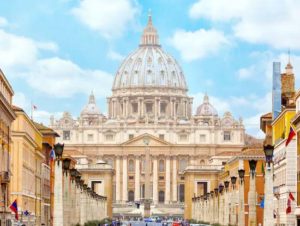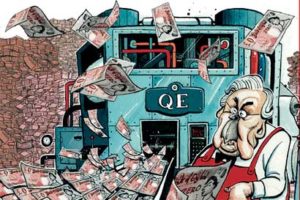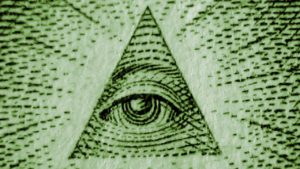 The Coronavirus phenomenon has left so many attired in wonder that they know not what to say (1) – including the undersigned who runs the positive risk of losing some or all of his 25 readers.
The Coronavirus phenomenon has left so many attired in wonder that they know not what to say (1) – including the undersigned who runs the positive risk of losing some or all of his 25 readers.
Writing objectively about the reported death of thousands and the predicted demise of millions is impossible. For the very questioning of the figures triggers a perception of callousness, cynicism or indifference, however alien these sentiments may be in the mind and soul of the questioner. Continue reading

 The life of peoples are a vague and inexhaustible subject, and I should tell the reader that I am not presenting here yet another opinion on the Coronavirus phenomenon and its broadened effects on society. For, when examining current affairs, I am eroded by subtle remorse, weakened by rationalizations, laden by perplexities and constitutionally prone to be a martyr of doubt.
The life of peoples are a vague and inexhaustible subject, and I should tell the reader that I am not presenting here yet another opinion on the Coronavirus phenomenon and its broadened effects on society. For, when examining current affairs, I am eroded by subtle remorse, weakened by rationalizations, laden by perplexities and constitutionally prone to be a martyr of doubt.  As the following content may be controversial, I do not pretend to truth, even to the truth of him whose thought and findings I report. My basic knowledge rests on the understanding that the property of rain is to wet and of fire to burn, and that a great cause of the night is lack of the sun.(1)
As the following content may be controversial, I do not pretend to truth, even to the truth of him whose thought and findings I report. My basic knowledge rests on the understanding that the property of rain is to wet and of fire to burn, and that a great cause of the night is lack of the sun.(1) In all mass phenomena it is uncertain whether to believe the scientists as the infallible voices of truth, or if, in their explanation of some events, we see but the dimming of the light of reason. For in the current currents of the world, science is often an improper verbal expression, used by sundry technocratic dictatorships to suggest unquestionable infallibility, leading to the imposition of very questionable restrictive measures
In all mass phenomena it is uncertain whether to believe the scientists as the infallible voices of truth, or if, in their explanation of some events, we see but the dimming of the light of reason. For in the current currents of the world, science is often an improper verbal expression, used by sundry technocratic dictatorships to suggest unquestionable infallibility, leading to the imposition of very questionable restrictive measures  Men judge by the complexion of the sky, the state and inclination of the day (1). Yet, to the perplexed observer it was difficult, in 2013, to guess what Pope Bergoglio was up to. For one, the resignation of Pope Benedict XVI was puzzling. After all, the last Pope to resign, 719 years earlier, was Celestine V, five months after his election, in 1294 AD
Men judge by the complexion of the sky, the state and inclination of the day (1). Yet, to the perplexed observer it was difficult, in 2013, to guess what Pope Bergoglio was up to. For one, the resignation of Pope Benedict XVI was puzzling. After all, the last Pope to resign, 719 years earlier, was Celestine V, five months after his election, in 1294 AD  It is sometimes easier to ascertain the ambiguities, disentangle the intricacies, and recover the meaning of events long past, than it is to recover the logic of events now current.
It is sometimes easier to ascertain the ambiguities, disentangle the intricacies, and recover the meaning of events long past, than it is to recover the logic of events now current. The godfathers of modern banking have a lively lexical imagination. They invented a brave new vocabulary that simultaneously informs and misinforms, leads and misleads, darkens and enlightens, depresses and amuses – while inevitably taxing and confusing the understanding of the uninitiated.
The godfathers of modern banking have a lively lexical imagination. They invented a brave new vocabulary that simultaneously informs and misinforms, leads and misleads, darkens and enlightens, depresses and amuses – while inevitably taxing and confusing the understanding of the uninitiated. Distance of time or place can reconcile complacent minds to wonderful narratives. Besides, the greatest part of mankind has no other reason for their opinion than they are in fashion.
Distance of time or place can reconcile complacent minds to wonderful narratives. Besides, the greatest part of mankind has no other reason for their opinion than they are in fashion. It is tacitly assumed that the American information industry produces notices and descriptions of actual events. Whereas it routinely delivers a narrative of adulterated facts and improbable fiction – the whole blended with a top-down imposition of Zionist ideology masquerading as national interest. I say ‘Zionist’ because a country in which the word of command comes from elsewhere is nothing more than a province. Which may explain many events unequivocally alien to American interest.
It is tacitly assumed that the American information industry produces notices and descriptions of actual events. Whereas it routinely delivers a narrative of adulterated facts and improbable fiction – the whole blended with a top-down imposition of Zionist ideology masquerading as national interest. I say ‘Zionist’ because a country in which the word of command comes from elsewhere is nothing more than a province. Which may explain many events unequivocally alien to American interest.